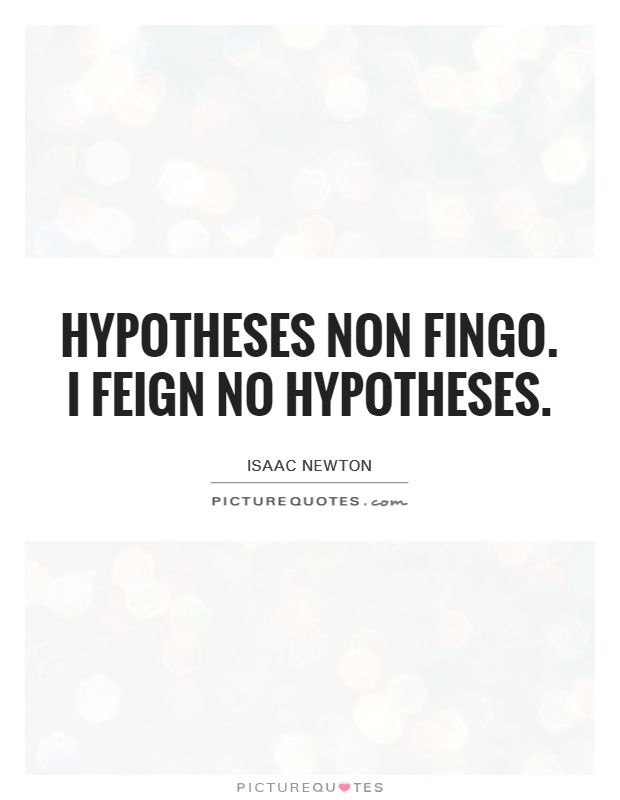Hypotheses non fingo. I feign no hypotheses

Hypotheses non fingo. I feign no hypotheses
Isaac Newton, one of the most influential scientists in history, is often associated with the phrase “Hypotheses non fingo” which translates to “I feign no hypotheses.” This statement reflects Newton’s commitment to empirical evidence and his rejection of speculative theories in his scientific work.Newton’s approach to science was grounded in observation and experimentation. He believed that theories should be based on evidence and that hypotheses should only be proposed when supported by data. This commitment to empirical evidence is evident in his most famous work, the Principia Mathematica, where he laid out his laws of motion and universal gravitation based on careful observations and mathematical calculations.
Newton’s rejection of hypotheses was not a rejection of creativity or imagination in science. Instead, he believed that hypotheses should be based on evidence and should be testable through experimentation. He famously stated, “I frame no hypotheses,” meaning that he did not propose theories without evidence to support them.
This commitment to empirical evidence and rejection of speculative theories set Newton apart from many of his contemporaries. While other scientists of the time were often quick to propose hypotheses based on limited evidence, Newton insisted on rigorous experimentation and observation before drawing any conclusions.
Newton’s approach to science has had a lasting impact on the field. His emphasis on empirical evidence and rejection of speculative theories laid the foundation for the scientific method as we know it today. By insisting on evidence-based theories, Newton helped to establish a standard of rigor and objectivity in scientific inquiry that continues to shape the way we understand the natural world.












 Friendship Quotes
Friendship Quotes Love Quotes
Love Quotes Life Quotes
Life Quotes Funny Quotes
Funny Quotes Motivational Quotes
Motivational Quotes Inspirational Quotes
Inspirational Quotes